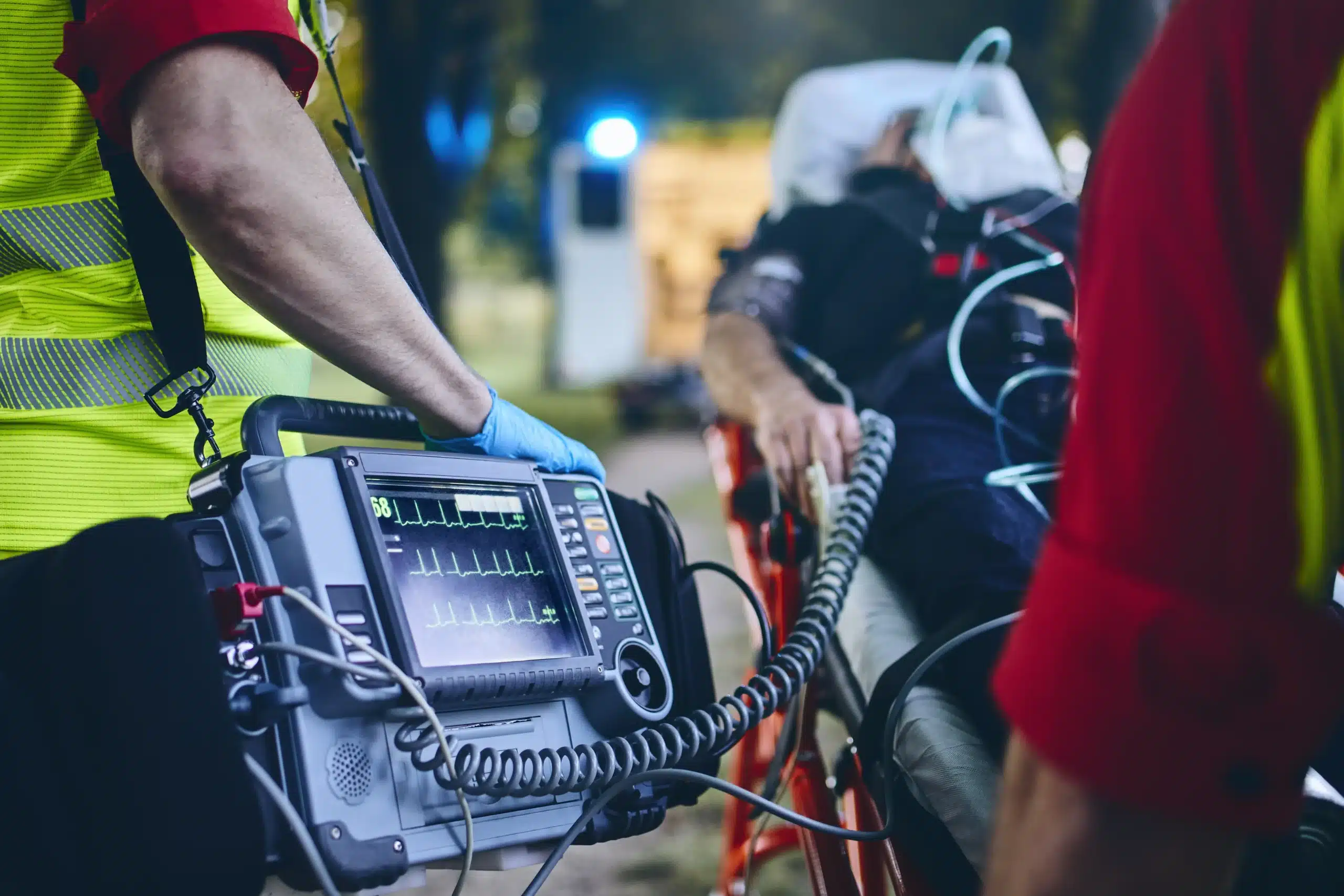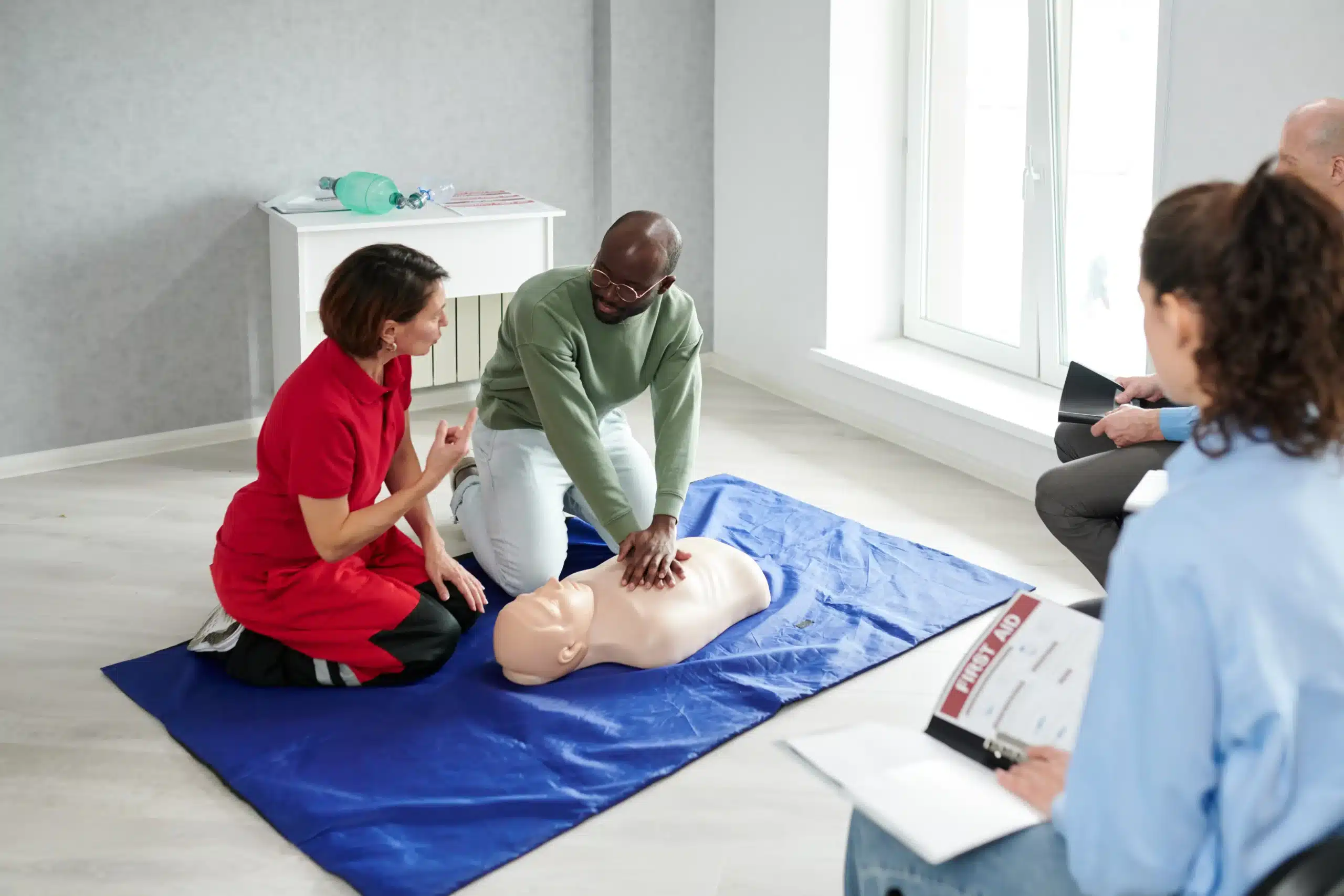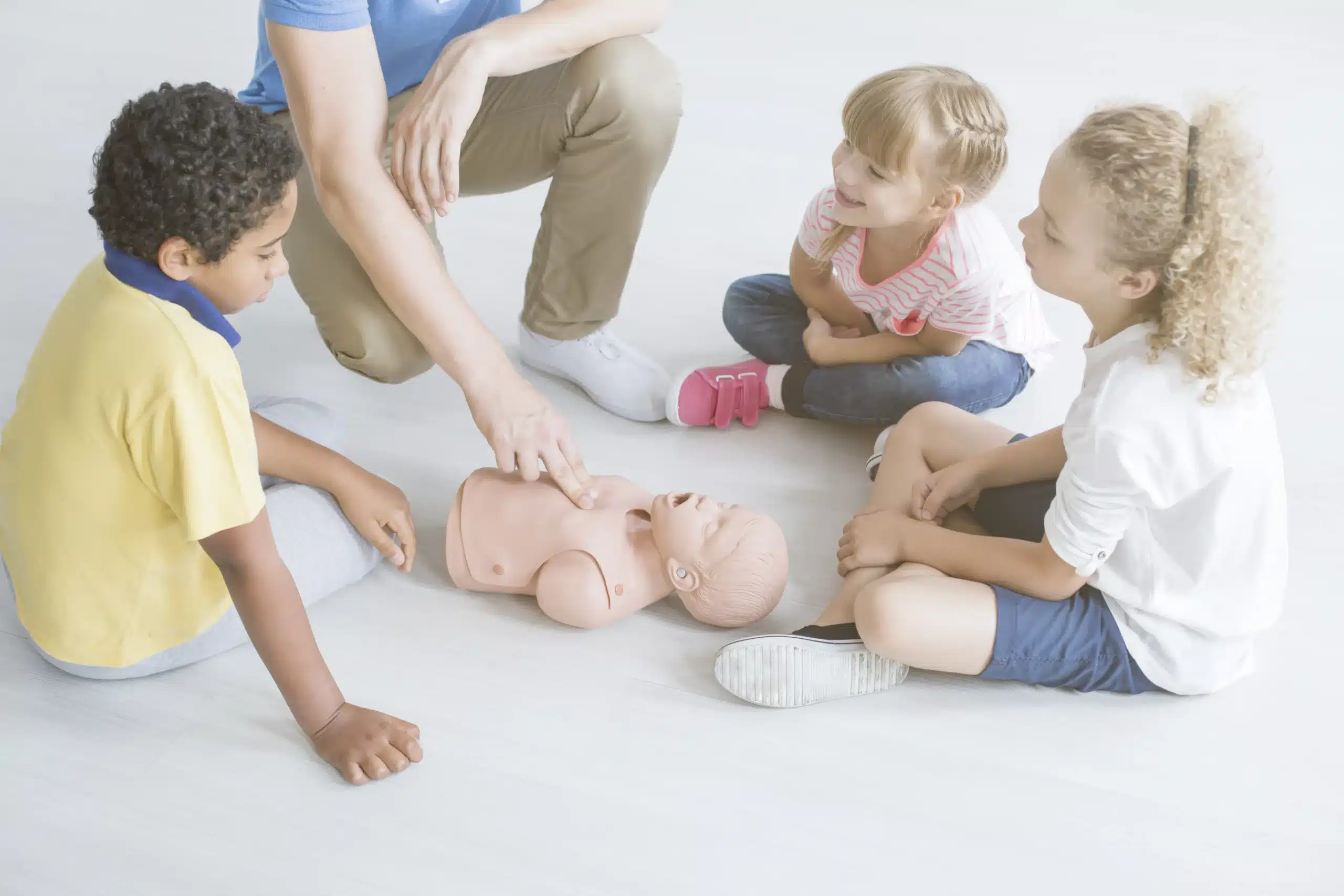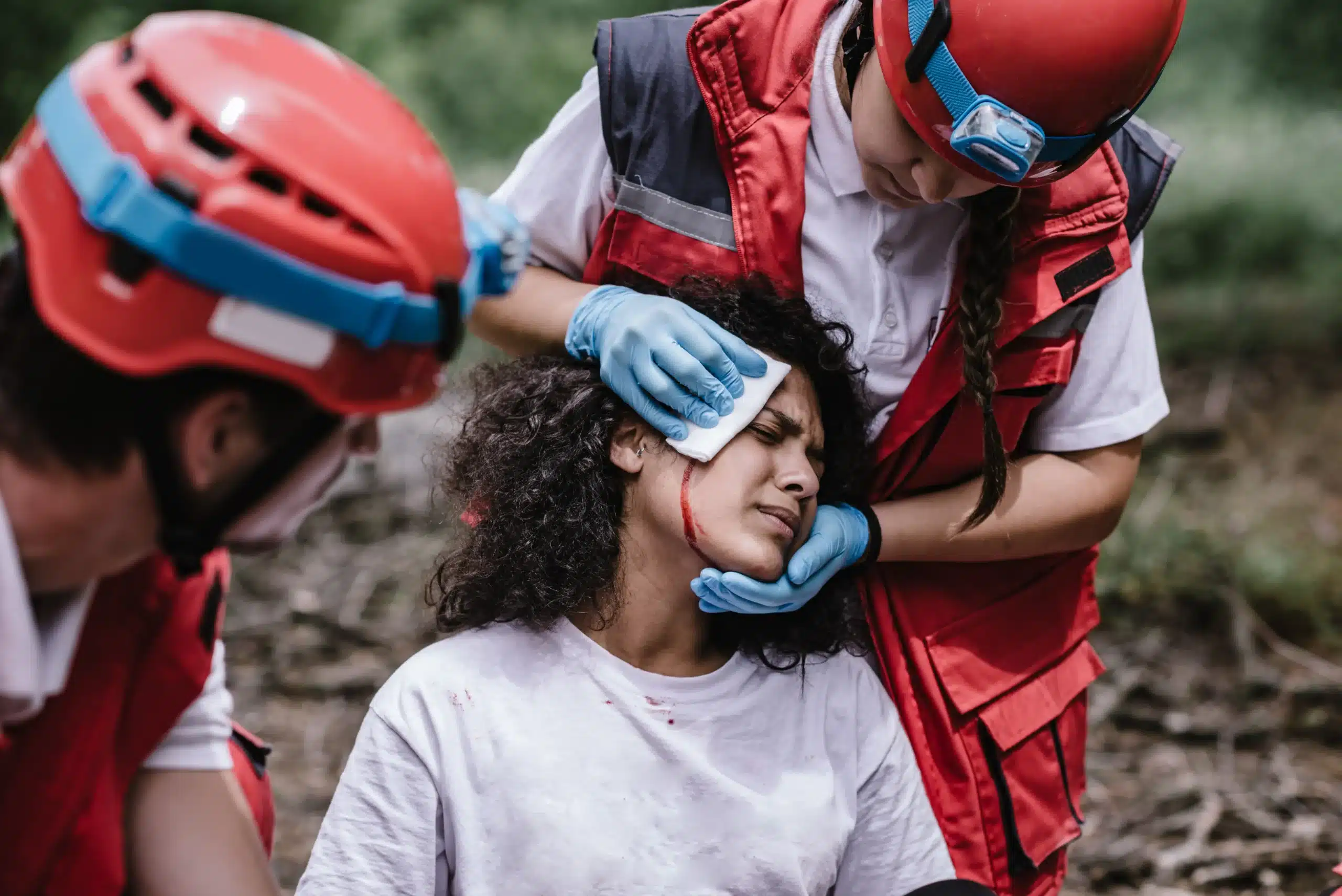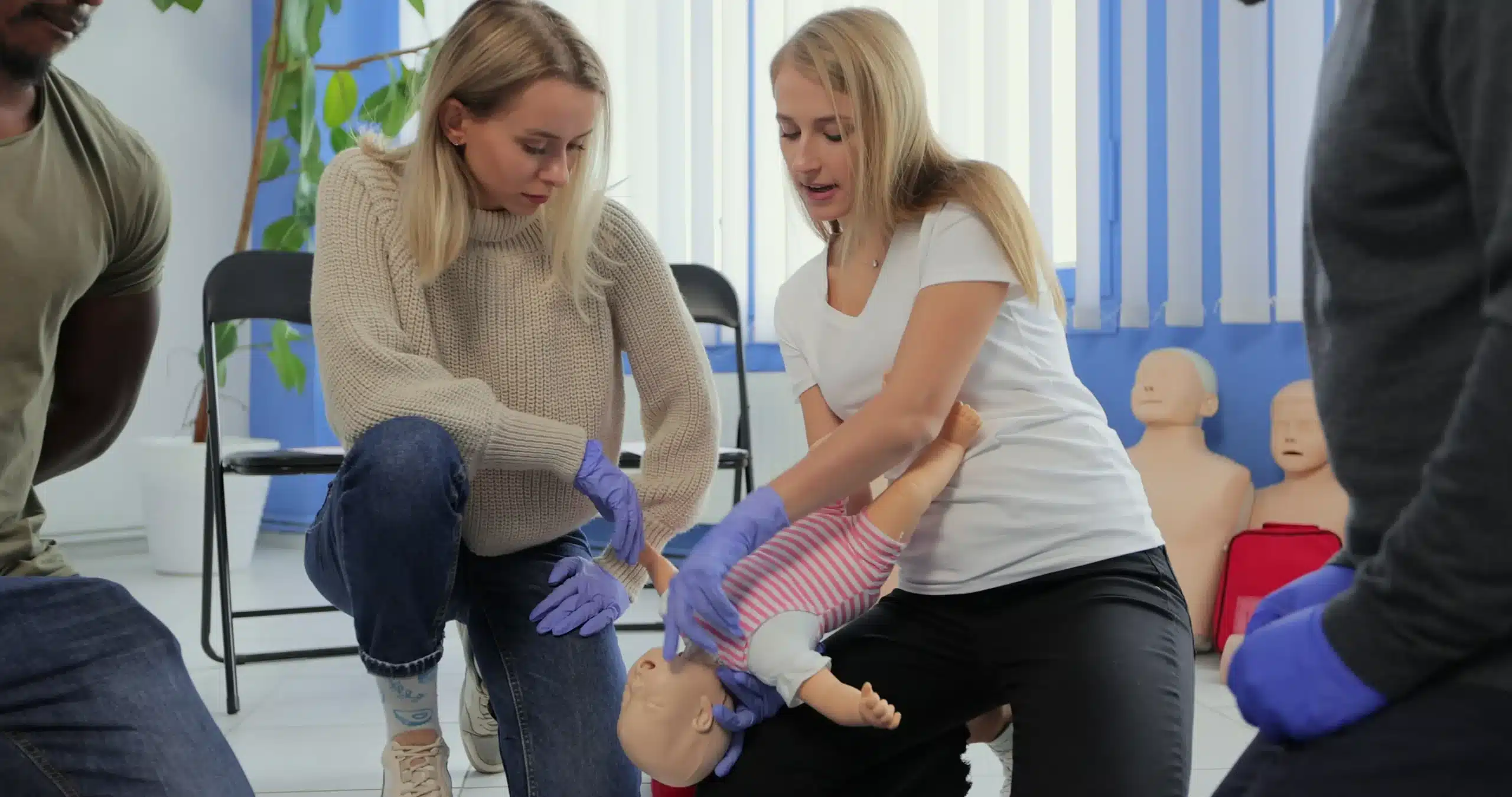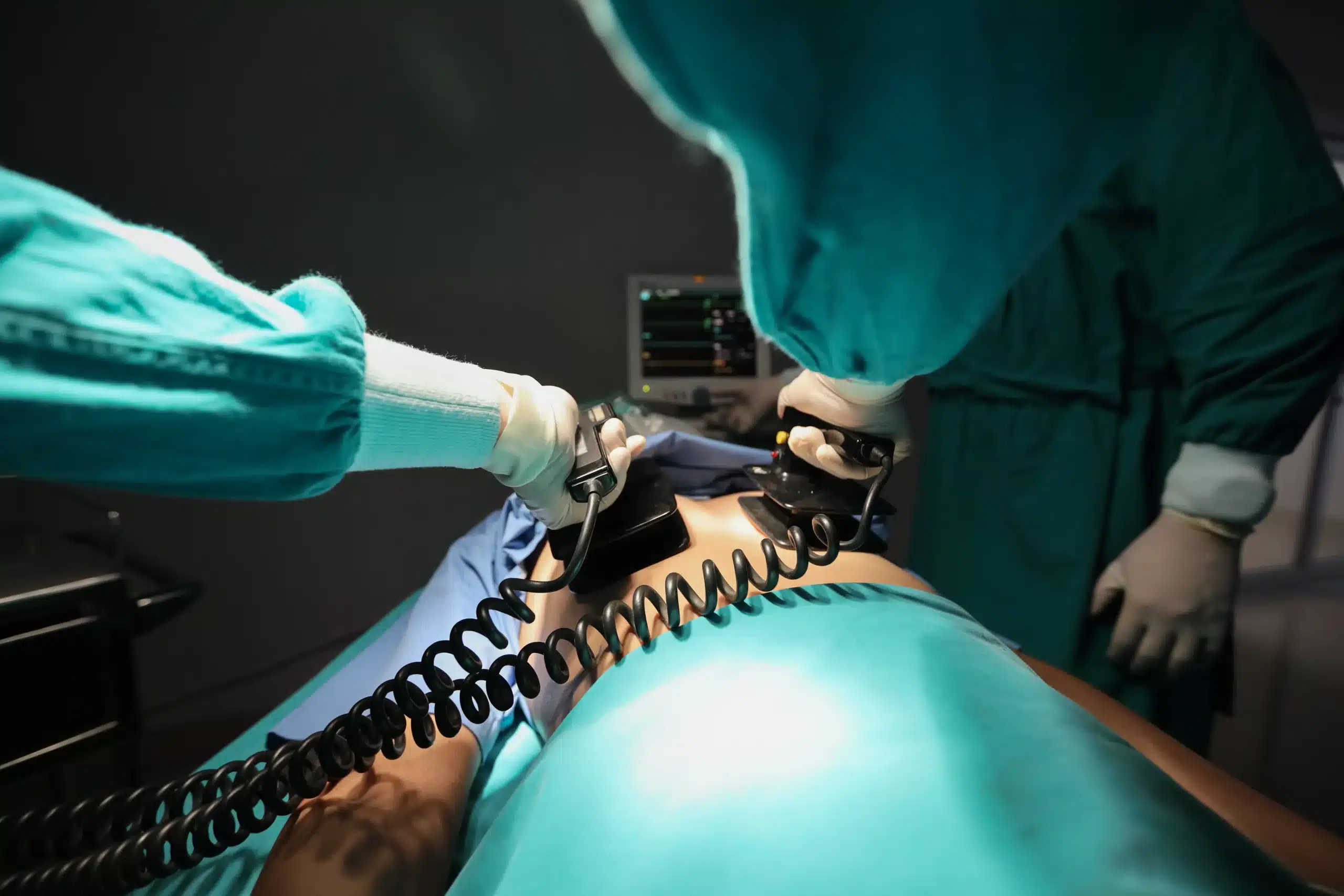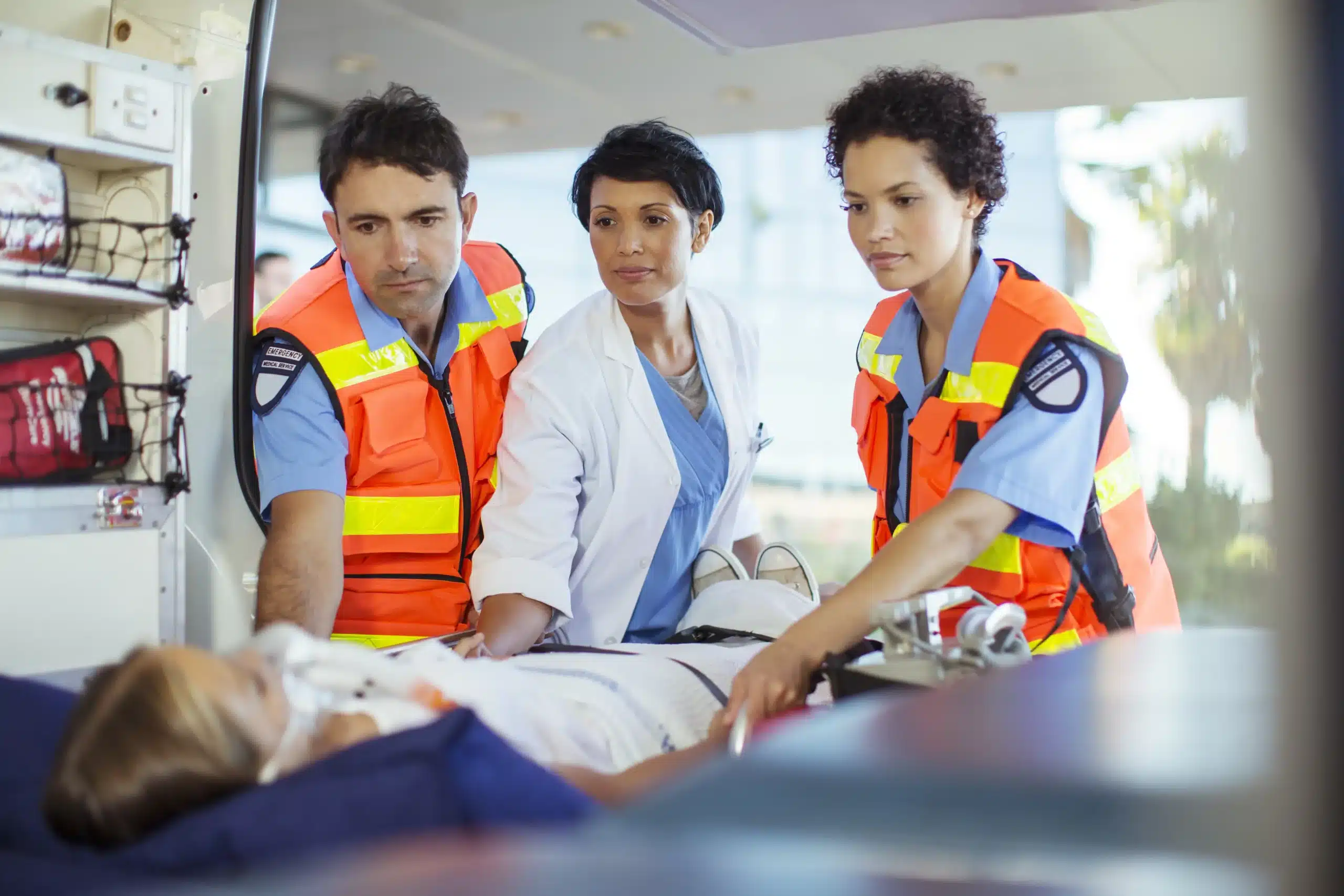Emergencies can happen when we least expect them. Having the skills to respond effectively can make all the difference. Basic Life Support (BLS) certification provides the knowledge and training to provide immediate care during critical situations, bridging the gap until professional medical help arrives. This guide is your go-to resource for BLS certification classes in Livermore. We’ll cover everything from the essential components of BLS training and various class formats to choosing the right provider and understanding certification costs. Whether you’re a healthcare worker, a caregiver, or simply someone who wants to be prepared, this guide will help you find the perfect BLS course in Livermore.
Key Takeaways
- BLS certification empowers anyone to save lives: It’s not just for healthcare professionals; these essential skills are valuable for everyone. Explore different learning formats to find what works best for you.
- Select a reputable training provider: AHA certification, experienced instructors, and positive reviews are key factors to consider. Inquire about potential discounts and flexible scheduling options.
- Stay current with your BLS skills: Renew your certification every two years and consider ongoing learning opportunities to maintain your confidence and competence in emergencies.
What is BLS Certification?
Basic Life Support (BLS) certification equips people with the skills to respond to life-threatening emergencies. It focuses on providing immediate care until paramedics or more advanced medical professionals arrive. Think of it as the foundation of emergency medical care, covering everything from recognizing when someone needs help to starting CPR. While crucial for healthcare providers, it’s also incredibly valuable for anyone who wants to be prepared for an emergency. BLS certification emphasizes high-quality CPR and teamwork, focusing on single-rescuer scenarios. This includes understanding how to assess a patient, perform chest compressions, give rescue breaths, and use an automated external defibrillator (AED). The goal is to maintain oxygen flow to the brain and other vital organs until professional help arrives. BLS certification is often a prerequisite for healthcare careers. Learn more about our CPR and First-Aid certification courses.
Key BLS Training Components
BLS training covers several essential components. You’ll learn how to use an automated external defibrillator (AED), a portable device that can help restore a normal heart rhythm. The training also includes basic airway management techniques, ensuring someone can breathe effectively during an emergency. Additionally, you’ll learn how to help someone who is choking, a skill that can be life-saving. These skills are regularly updated to reflect the latest scientific guidelines and best practices in emergency care. High-quality CPR is a major focus, emphasizing proper hand placement, compression depth, and rate. BLS training also covers how to recognize the signs of a heart attack, stroke, and other medical emergencies. Explore our RQI classes for quick certification.
Why BLS Matters in Healthcare
BLS certification is fundamental for anyone working in healthcare. It complements more advanced training by reinforcing essential life-saving skills. Proficiency in BLS directly impacts patient safety and can significantly improve outcomes during emergencies. For healthcare workers, knowing BLS principles is crucial for providing the best possible care. It’s not just about having the certification; it’s about having the confidence and competence to act quickly and effectively when every second counts. BLS-certified professionals are better equipped to handle crises, contributing to a safer environment for both patients and colleagues. It also demonstrates a commitment to patient well-being and professionalism. Consider joining our discount group classes to learn alongside your colleagues.
Best Livermore BLS Certification Providers
Finding the right BLS certification provider is crucial for receiving quality training and obtaining a recognized credential. Several excellent options in Livermore offer comprehensive BLS courses that meet American Heart Association standards. Here’s a closer look at some of the top providers:
Safety Training Seminars
Safety Training Seminars offers various American Heart Association courses, including BLS, ACLS, PALS, CPR, and First Aid. They focus on providing excellent customer service and competitive pricing, with certifications valid for two years. Their commitment to high-quality instruction makes them a reliable choice for healthcare professionals and anyone seeking BLS certification in the Livermore, Dublin, and Mountain House areas. They also offer discount group classes and the innovative RQI program for quick certification. For those looking for the best value, Safety Training Seminars offers a low price guarantee.
Bay Area CPR
Bay Area CPR provides American Heart Association-certified courses in BLS, ACLS, PALS, and First Aid. They offer flexible scheduling options, including weekend and evening classes, catering to busy schedules. Group classes are also available, making them a convenient option for workplaces or groups of friends seeking certification together.
American Red Cross
The American Red Cross is a nationally recognized organization offering BLS certification courses designed for healthcare providers, students, and emergency responders. Their blended learning approach combines online coursework with in-person skills sessions, providing flexibility and hands-on practice.
Cascade Training Center
Cascade Training Center offers comprehensive AHA resuscitation training to the Livermore region, including BLS, ACLS, and PALS certification courses. They cater to various skill levels, from basic to advanced, ensuring that participants receive the appropriate training for their needs.
ProCPR
ProCPR offers convenient and accessible online BLS certification courses that allow participants to learn at their own pace. Their courses are designed to meet the needs of healthcare professionals and provide the flexibility to complete training from anywhere with an internet connection.
CPR Certification Institute
The CPR Certification Institute provides a variety of CPR and BLS certification courses, both online and in-person. They emphasize practical skills and knowledge necessary for emergency situations, ensuring participants are well-prepared to respond effectively.
BLS Class Types and Formats
Finding the right BLS class format is key to successfully completing your training. Whether you thrive in a traditional classroom or prefer the flexibility of online learning, there’s a BLS course out there for you. Let’s explore the most common options:
In-Person Training
In-person BLS training offers a hands-on learning experience guided by a certified instructor. This format allows for immediate feedback, personalized instruction, and the chance to practice skills in a controlled environment. If you value face-to-face interaction and learn best through direct observation and practice, in-person training is an excellent choice. Safety Training Seminars in Livermore offers in-person American Heart Association BLS classes, ensuring your training aligns with the latest guidelines. This option provides a structured learning environment ideal for those new to healthcare or wanting a refresher.
Online Training with Skills Testing
If you have a busy schedule or prefer learning at your own pace, online BLS training might be a better fit. These courses typically involve interactive modules, videos, and online assessments. While the coursework happens online, you’ll need a separate in-person skills testing session to get certified. This blended approach offers flexibility while still ensuring you can perform essential BLS skills. Online BLS courses often require less time for the online portion, making them convenient for busy professionals.
Blended Learning
Blended learning combines online coursework and in-person skills practice. This format lets you complete the cognitive portion of the training online at your own pace, then attend a shorter in-person session to practice and test your skills. Blended learning offers a good balance of flexibility and hands-on training. Blended learning BLS courses are readily available in Livermore, providing flexible scheduling and competitive pricing.
Class Length and Time Commitment
The time commitment for BLS certification depends on the format. In-person classes usually take a full day, while online and blended learning options offer more flexibility. You can often complete online coursework in a few hours, with an additional in-person skills session lasting 1–2 hours. BLS renewal courses often require less time than initial certification courses. Consider your schedule and learning style when selecting a course format to ensure you can dedicate enough time to complete the training.
BLS Certification Costs in Livermore
Knowing the cost of BLS certification is a practical first step. Let’s break down typical expenses and explore ways to find the best value.
Average Provider Pricing
BLS renewal courses in Livermore usually cost between $70 and $90. First-time certification often costs slightly more, typically in the $80–$100 range. Remember that these are averages, and the actual price depends on several factors. Safety Training Seminars offers various courses and competitive pricing, so check their site for current rates.
Factors Affecting Cost
Several things influence the final price of your BLS certification. The training provider and course format are key factors. For example, in-person training sometimes costs more because of facility and equipment expenses. What’s included also matters. Some courses bundle study materials or online resources, while others offer them separately. The type of certification also matters. American Heart Association (AHA) certification is often preferred by employers, which can influence pricing.
Discounts and Package Deals
Before committing, ask about potential discounts. Many providers, including Dublin CPR Classes, offer lower rates for group registrations, a smart option for workplaces or groups of friends. You might also find discounts for students, military personnel, or first responders. Another money-saving tip is to look for package deals. If you need multiple certifications (CPR, ACLS, or PALS, for example), bundling them can save you money. Safety Training Seminars offers these combined training options.
What Happens in a BLS Certification Class?
Getting BLS certified is a rewarding experience. You’ll gain essential skills and the confidence to act in medical emergencies. Here’s what you can expect during your BLS certification course:
Course Content Overview
BLS classes cover core life-saving techniques. You’ll learn adult, child, and infant CPR, how to use an automated external defibrillator (AED), and how to help someone who is choking. The curriculum also emphasizes teamwork, communication, and the importance of recognizing the signs of a medical emergency. Many courses, like those offered at Safety Training Seminars, follow the American Heart Association guidelines.
Hands-on Practice
BLS isn’t just about lectures. You’ll spend a significant portion of your class practicing your skills. Expect hands-on training with mannequins and AED trainers, giving you realistic experience in a safe learning environment. Experienced instructors will guide you through each step, offering personalized feedback and support. This interactive approach helps build muscle memory and confidence. Safety Training Seminars prioritizes this hands-on learning.
Assessment and Certification
At the end of your BLS class, you’ll complete a skills test to demonstrate your proficiency. Once you pass, you’ll receive an official American Heart Association certification card, valid for two years. This nationally recognized credential proves your ability to provide basic life support in various situations. Remember, maintaining your certification requires taking a renewal course before your current card expires. Check out the renewal options available.
BLS Instructor Qualifications
Becoming a BLS Instructor isn’t just about knowing CPR—it’s about effectively teaching others how to save lives. It requires a specific skill set, experience, and dedication to high-quality training. Here’s what to look for in a qualified BLS Instructor:
Required Instructor Certifications
First and foremost, a BLS Instructor must hold a current BLS Instructor certification from a recognized organization like the American Heart Association (AHA). Safety Training Seminars, for example, is a woman-owned AHA Training Center, signifying their commitment to upholding AHA standards. This affiliation ensures instructors are trained to the latest guidelines and possess the necessary teaching credentials. Instructors should also maintain current provider-level certifications in BLS and any other disciplines they teach, such as ACLS or PALS.
Healthcare Backgrounds
While not always mandatory, a background in healthcare often enriches a BLS Instructor’s teaching. Many instructors are nurses, paramedics, or other healthcare professionals who bring real-world experience to the classroom. This background allows them to connect course content to practical scenarios, offering valuable insights and a deeper understanding of emergency medical care. For instance, instructors with experience in emergency rooms can provide firsthand accounts of how BLS is applied in critical situations, making the training more engaging and relevant.
Real-World Emergency Experience
Beyond certifications, real-world emergency experience is a significant asset for a BLS Instructor. Having faced actual emergencies, these instructors can provide practical examples, answer student questions with authority, and offer a realistic perspective on the challenges and rewards of providing emergency care. This experience translates into more effective training, better preparing students to confidently respond to real-life emergencies. Training centers like Cascade Training Center, which offers various levels of AHA resuscitation training, often employ instructors with this valuable experience.
Choosing the Right BLS Provider
Finding the right BLS training provider is essential for a positive and effective learning experience. It’s more than just ticking a box; it’s about gaining the confidence and skills to potentially save a life. With several options available in Livermore, how do you choose the best fit?
Factors to Consider
Finding a BLS course that meets your needs is straightforward: Livermore offers numerous options with flexible schedules and competitive pricing. Many providers offer group discounts and blended learning formats. Consider these key factors when making your decision:
- Reputation: Look for providers with a strong track record and positive student feedback. Word-of-mouth referrals and online reviews can be valuable resources. Safety Training Seminars is known for its excellent customer service and commitment to providing high-quality training.
- AHA Certification: Ensure the provider offers courses certified by the American Heart Association. This guarantees the course content meets the latest AHA guidelines and standards, resulting in a certification card valid for two years.
- Course Format: Do you prefer in-person, online, or blended learning? Blended learning combines online coursework with in-person skills practice. Consider which format best suits your learning style and schedule.
- Schedule Flexibility: Look for providers offering courses on various dates and times to accommodate your schedule. Daily classes are often available, and some providers, like Safety Training Seminars, can even come to your location for group training.
- Instructor Qualifications: Experienced and certified instructors make all the difference. The RQI program at Safety Training Seminars is a popular choice for healthcare professionals seeking a modern and efficient path to BLS certification.
Questions to Ask Before Enrolling
Once you’ve narrowed down your options, asking a few key questions can help you make the final decision. Don’t hesitate to reach out to the providers directly – they’re there to help!
- Instructor Expertise: Inquire about the instructors’ qualifications and experience. Are they certified by the American Heart Association or other recognized organizations? A strong healthcare background and real-world experience can significantly enhance the learning process. Safety Training Seminars instructors are AHA-certified.
- Course Content: Does the course content align with your specific needs? For example, if you’re a healthcare provider, ensure the course meets the healthcare provider standards. Ask for a detailed course overview. Check out this example of course content.
- Training Format: Clarify the format. Is it purely online, in-person, or a blend of both? Understanding the format will help you determine if it aligns with your learning preferences and logistical needs. This blog post discusses different BLS class formats.
- Associated Costs: What are the total costs? Are there any discounts for groups or repeat participants? Safety Training Seminars offers discounts for group classes, making it a cost-effective option. They also have a low price guarantee.
By considering these factors and asking the right questions, you can confidently choose a BLS provider in Livermore that meets your needs and sets you up for success.
Maintaining Your BLS Certification
Once you’ve earned your BLS certification, staying current is key. Knowing the renewal process and the value of continuing education will ensure you’re always ready to provide effective care.
Renewal Requirements
BLS certification is typically valid for two years. To maintain your credentials, you’ll need to take a renewal course before it expires. Renewal courses cover updates to BLS guidelines and techniques, keeping your skills sharp. These courses typically cost between $70 and $90, though prices can vary based on the provider and course content. Safety Training Seminars offers convenient BLS renewal courses in Livermore, along with certifications like CPR, ACLS, PALS, and First Aid, with flexible scheduling options.
Continuing Education
Beyond simply renewing your certification, ongoing learning is essential for healthcare professionals. Continuing education helps you refine your skills, explore new techniques, and expand your understanding of patient care. While BLS certification is fundamental for healthcare providers, some common misconceptions exist. Staying informed and separating fact from fiction regarding BLS training and best practices is crucial. Resources like those from Smart Sim Registration can help clarify any questions. Prioritizing continuing education shows your commitment to providing excellent care and staying at the forefront of your profession.
Common BLS Certification Misconceptions
Let’s clear up a few common misconceptions about BLS certification. These myths can prevent people from getting this valuable training.
Who Needs BLS Certification?
One of the biggest misconceptions is that only doctors and nurses need BLS certification. The truth is, BLS training is a valuable skill for anyone. Think first responders, teachers, coaches, parents, and other caregivers – basically, anyone who might need to respond to a medical emergency. BLS training covers essential life-saving skills like using an AED, basic airway management, and helping someone who is choking. These skills are valuable in various settings, from schools and workplaces to homes and community centers. Learn more about our CPR and First-Aid certification courses.
Time Commitment and Flexibility
Many people assume that getting BLS certified requires a huge time commitment. While it does require dedicated time for learning and practice, there’s plenty of flexibility. Many training centers offer various schedules and formats, including online options combined with in-person skills testing. This makes it much easier to fit BLS training into a busy schedule. Some programs, like the RQI program, offer a self-paced, flexible approach to quick certification. Explore our RQI classes for a flexible learning experience.
Cost vs. Value
Another misconception is that BLS certification is expensive. It’s important to weigh the cost against the value. Consider the potential to save a life – the value of that is immeasurable. Also, many providers offer competitive pricing and group discounts, making the training even more accessible. Check out our group discount options. Safety Training Seminars offers a low price guarantee, ensuring you get the best value for your investment. See our low price guarantee for more details. In the long run, the cost of BLS training is small compared to the peace of mind and potential to make a real difference in an emergency.
Tips for BLS Certification Success
Getting ready for your BLS certification doesn’t have to be stressful. With the right preparation and mindset, you can confidently achieve your certification goals. Here’s how:
Prepare for Your Class
First, lay the groundwork for a positive learning experience. Use any pre-course materials provided by your chosen training center. Many providers offer study guides, practice tests, or even skills apps. Take advantage of these resources to familiarize yourself with the BLS content before class. This will allow you to focus on mastering the practical skills during the training session. Consider your learning style and schedule as you explore options. Livermore offers numerous BLS courses with flexible schedules and competitive pricing, including group discounts and blended learning formats. Safety Training Seminars is one option for finding a course that fits your needs.
Overcome Common Challenges
One common misconception is that BLS training is only for healthcare professionals. Not true! BLS certification equips anyone to respond to cardiac arrest and other emergencies. The training covers essential life-saving techniques, including the use of automated external defibrillators (AEDs), basic airway management, and techniques for assisting someone who is choking. Understanding the wide applicability of BLS can motivate you to pursue this valuable certification. Another concern is often cost. While there’s a fee involved, remember that BLS certification is an investment in your skills and ability to help others. Safety Training Seminars offers a low-price guarantee, making quality training accessible. Finally, don’t let misunderstandings about the content hold you back. BLS for Healthcare Providers is a specific course designed for healthcare professionals, but the core principles of BLS are relevant for everyone. Knowing these principles is important for healthcare workers and contributes to patient safety. Debunking common myths about BLS certification can help you approach your training with confidence.
Related Articles
- BLS Classes in Dublin: Your Complete Guide – Livermore CPR Classes
- BLS Training Near Me: Find the Right Course – Livermore CPR Classes
- BLS Certification in Mountain House: Your Guide – Livermore CPR Classes
- BLS Certification Near Me: Your Complete Guide – Livermore CPR Classes
- BLS Renewal in Dublin: A Simple Guide – Livermore CPR Classes
Frequently Asked Questions
Is BLS certification only for healthcare professionals? Not at all! While essential for healthcare providers, BLS certification is valuable for anyone who wants to be prepared for a medical emergency. Teachers, coaches, parents, caregivers, and anyone interested in life-saving skills can benefit from BLS training. It empowers you to respond effectively in various situations, from the workplace to your own home.
What if I’m already CPR certified? How is BLS different? BLS certification builds upon basic CPR skills. It includes CPR but also covers more comprehensive techniques like using an AED, basic airway management, and recognizing the signs of various medical emergencies. It also emphasizes teamwork and communication, especially important in healthcare settings. If you’re already CPR certified, BLS enhances your skills and knowledge.
How long does it take to get BLS certified, and what’s the renewal process? The time commitment varies depending on the course format (in-person, blended, or online) and the provider. In-person classes often take a full day, while blended or online options can be more flexible. BLS certification is typically valid for two years. To renew, you’ll need to take a recertification course before your current certification expires.
What’s the typical cost of BLS certification in Livermore? Costs range from $70 to $100, depending on the provider, course format, and whether it’s initial certification or renewal. Many providers offer group discounts, so inquire about those if you’re certifying with colleagues or friends. Look for providers with competitive pricing and a low-price guarantee to ensure you’re getting the best value.
How do I choose the right BLS training provider? Look for a provider offering American Heart Association-certified courses. This ensures the training aligns with the latest guidelines. Consider factors like the provider’s reputation, instructor experience, course format options (in-person, online, or blended), schedule flexibility, and cost. Don’t hesitate to ask providers about their instructors’ qualifications, course content, and any available discounts.
